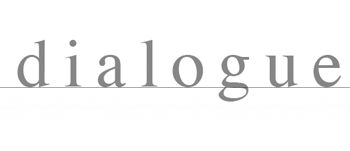Dialogue
Re: “Let Them Have Liquor Licenses!” 28 March 2OO9
April 2OO9 issue page 3O
From: John H Eisenbeiser IV
Whip City Spirits Incorporated
65 Southwick Road Westfield, MA O1O85
dba/76 Discount Loquors, Westfield, MA O1O85
dba/Riverside Liquors, Agawam, MA O1OO1
To Whom It May Concern,
I am an owner and manager of two full liquor stores in Massachusetts. I am writing to comment on your [Recap] article about Governor Patrick’s proposal to add more liquor licenses and request that my letter be published.
It is an obvious attempt by the administration to raise revenue instead of cutting the budget or the growth of government.
To qualify my opinion I wish to note that my family has been in the retail end of the liquor business for thirty years. I am an eye witness to the renaissance of constant new products that the beverage industry has introduced over the past fifteen years. Both of my stores will each gross two million dollars in sales this year. The last store I bought was in 2OO6, at which time its sales were approximately three quarters of a million dollars. One store boarders Connecticut.
My assertion is that the obvious solution does not always produce the intended results. Meaning, adding more stores will not generate additional revenues, but add costs to the consumer and put further strains on our industry.
It is difficult to get rid of government regulations or taxes that do not work or have outlived their intended purpose once they are imposed. Thoughtful deliberation should be made on this matter since lots of livelihoods are at stake. I agree that the regulations governing our trade should be reviewed from time to time. However, consideration has to be given to the many small business owners who have their life savings hinging on their business and liquor license. The proposed course would significantly devalue these savings while providing no additional liquor taxes for the Commonwealth.
It is my contention that it is in the best interest of the Commonwealth to see existing businesses become larger. This would be to the benefit of the consumer and the many mom and pop businesses out there that are just getting by. Some possible ideas are low interest financing for expansion or to purchase existing licenses. Programs to update and make more efficient lighting and refrigerating. Possibly even growing into a formula greater, not less, than the existing one to five thousand ratio.
Contrast Massachusetts with Connecticut, as an example. Connecticut’s ratio allows for twice as many liquor stores per capita. Simply put they have twice as many liquor stores than we do. Does that mean residents of Connecticut drink twice as much? No. Business is spread out over that many more locations. This is a logistical burden to the wholesalers, with associated costs passed on to the consumer. Also, this is an additional burden on law enforcement and regulators with costs being passed on to the tax payer.
The beverage industry is exploding with new products that our average size store simply cannot accommodate. I estimate that a ten thousand square foot store could begin to adequately service the public demand for variety and competitive prices. Owning a store that size is a more expensive proposition for the independent liquor store operator. There simply is not enough business out there to go around to support such operations. If the Commonwealth allows our stores to afford to become larger then the consumer will have real opportunities to shop in a twenty-first century liquor store. Thus having more selection and ways to spend money and generate tax revenues. As an example, would a consumer rather have twenty locations to shop a thousand of the same products or ten larger locations to shop ten thousand different products at better prices? That induces impulsive buying where a customer buys products or quantities that they did not plan to or, in other words, a spontaneous purchase. These types of purchases have greatly contributed to my success and growth.
There would be a net gain of revenue for the Commonwealth while keeping the tax burden to a minimum. The consumer would gain better stores with more variety and better prices. The owner/operator would protect and add value to his lifetime taxable investment.
Additional benefits would be to the Commonwealth’s labor force. Now the average liquor store is too small to be able to afford to pay for professionally trained clerks, wine connoisseurs, or full time managers. More often than not it is the owner who wears all the proverbial hats and gets by with supplemental part time staff. Allowing true twenty-first century liquor stores would generate competitive salaried jobs, with benefits such as health insurance. All of which would generate taxable salaries and lessen the dependence on government services. Stores would have less turnover in their staff. Chains could better afford standardized training regarding TIPS and about the products that they sell.
The Commonwealth needs to look to examples of other states and study this matter very carefully to prevent irreparable harm. This could be a win, win, win on behalf of the tax payer, the consumer and your friendly neighborhood liquor store.
Massachusetts’ Beverage Business© does not assume any responsibility for any errors that inadvertently appear in this page. Opinions expressed by writers are their own and do not necessarily express the position of this publication or management. We reserve the right to edit or reject any material. All rights reserved.

